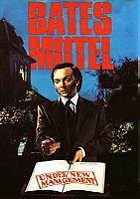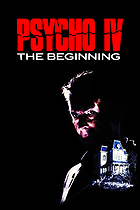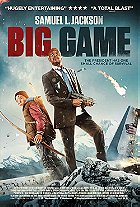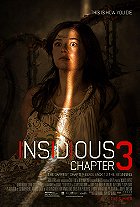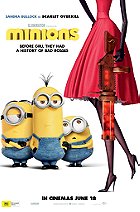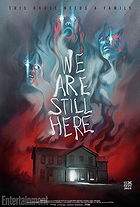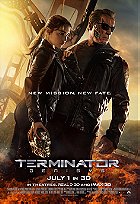"The Force is strong with this one."
Star Wars is so much more than just a movie - it's a cinematic experience; an event picture with the ability to appeal to adults, teenagers and children in equal measure. It's an influential pop culture phenomenon which has become omnipresent over the last four decades, leading to video games, comic books, toy lines, animated television shows, and every type of merchandise you can possibly imagine. When it was released in May 1977, there had never been a motion picture quite like Star Wars before. Sure, there had been goofy science fiction flicks, but George Lucas and his team created a believable, successfully straight-faced spectacle, executing an involving character-driven story with state-of-the-art special effects. And in 2015, this first Star Wars movie - which was later re-titled Star Wars: Episode IV - A New Hope - has lost none of its potency; it's still an insanely enjoyable space opera fantasy epic, imbued with breathtaking action scenes and top-flight technical specs. Adults will appreciate the compelling storytelling, while kids will be enraptured by the film's colourful special effects.
Civil war has broken out across the galaxy, and the Galactic Empire have finished constructing a heavily-armoured space station known as the Death Star, which is powerful enough to destroy entire planets. The Rebel Alliance manage to steal the plans for the Death Star, but Imperial forces led by Lord Darth Vader (David Prowse) board a rebel spaceship, capturing Princess Leia (Carrie Fisher) who manages hides the Death Star plans in small droid R2-D2 (Kenny Baker), along with a desperate message for a certain Obi-Wan Kenobi (Alec Guinness). R2-D2 and fellow protocol droid C-3PO (Anthony Daniels) escape the captured ship, landing on the desert planet Tatooine. The droids wind up in the possession of young farmer Luke Skywalker (Mark Hamill), who dreams of a more exciting life. Finding Leia's message, Luke sets out to find Obi-Wan, but the Empire is also on the planet searching for the droids. Luke and Obi-Wan enlist the help of space pirate Han Solo (Harrison Ford) and his Wookie associate Chewbacca (Peter Mayhew) to help rescue the princess.
Many different iterations of Star Wars: Episode IV - A New Hope exist, with Lucas having altered the film for its 1997 Special Edition re-release, its 2004 DVD debut, and its 2011 Blu-ray release. To avoid confusion, I will concentrate on the original 1977 theatrical cut for this review, which is the preferred edition of myself and the majority of the world's Star Wars fans. Furthermore, even though the film was not initially called A New Hope, I will utilise its newer title in reference to the movie during this review. Got it? Good. We can proceed.
The central storyline of A New Hope is simple, to be sure, but this is perhaps one of the movie's primary charms. Whereas comparable sci-fi films like 1979's Star Trek: The Motion Picture get bogged down in chatter and big ideas, A New Hope is, at its core, an engaging Hero's Journey-esque narrative, with background details to enhance the story without harming pace or taking too much focus away from Luke. This first Star Wars movie continues to hold up because it doesn't forsake emotion for action. Whereas the Star Wars prequels amount to self-indulgent special effects demo reels with little in the way of heart or emotion, A New Hope takes its time to develop the roster of heroes, which amplifies the excitement of the action scenes since it's easy to care when the characters are put in danger. A sequel was never a sure thing during filming (what an amusing notion, looking back), thus A New Hope is a self-contained story, and does a superlative job of introducing the world and characters of Star Wars better than any of its sequels or prequels.
A New Hope demonstrates the old adage of "art through adversity." Lucas did not have a blank cheque to fulfil his vision, consulting his talented collaborators to create an achievable vision with the limited funds at their disposal and within the inherent restrictions of the era. It's the resourcefulness of the crew behind Star Wars which gives the picture its magic, as it's amazing what they were able to achieve considering the less-than-ideal conditions. Perhaps the greatest unsung hero of Star Wars is producer Gary Kurtz, who had previously worked with Lucas on American Graffiti and who was hugely influential as Star Wars took shape. Basically, Kurtz overturned many of Lucas' bad ideas and even coached the actors, but he gets barely any credit; people still mistakenly believe that the success of Star Wars is all attributable to Lucas.
The difference between A New Hope and more recent sci-fi movies is substantial. Produced before the advent of digital effects and computer-generated imagery, this first Star Wars is reliant on vast sets, location photography, skilful matte paintings, models, and other methods of special effects that were an absolute breakthrough at the time. And with the movie having been lensed on 35mm film stock, it carries a natural grain structure which makes the enterprise look tangible and real. Moreover, the fact that the props and sets aren't glossy or perfectly polished adds to the movie, as it gives the environment a properly lived-in feel. A New Hope is a movie that you can still watch and enjoy in 2015 without needing to cut the special effects any slack, because the grand illusion still stands. Convincing make-up and prosthetics were used to create the aliens, while the space battles were the result of a lot of hard work using miniatures and model ships. Even though the set-piece are not as dynamic as more recent action-adventures, it hardly matters; if anything, its modesty is precisely why the movie still works.
As stated previously, A New Hope's theatrical cut is the best way to watch the movie. Though some of the tactful digital touch-ups do work, the additional CGI creatures are unnecessary (the Jabba the Hutt scene is dreadful, with dated '90s CGI taking you out of the movie), and there are numerous other alterations which only serve to undermine the visuals and the story. Hell, even the colour grading has changed, making laser bolts look pink at times.
Star Wars is not exactly an actor's movie, but performances across the board are nevertheless effective, particularly Harrison Ford who's an impeccable Han Solo. The cast also boasts some veteran performers, with Alec Guinness and Peter Cushing playing vital roles in the proceedings, affording the production a degree of welcome gravitas. And then there's Lord Darth Vader, who was performed by David Prowse while James Earl Jones provided the unforgettably authoritative voice. Everything about Vader is memorable, from the design of his badass outfit to Earl Jones' ideal vocal performance, making him one of the great all-time villains of cinema. Furthermore, A New Hope benefits from John Williams' iconic score. There are not many themes as instantly recognisable as the Star Wars title music, as it's perfectly majestic and instantly evokes exhilaration. Williams' compositions across the board are note-perfect, amplifying the drama and excitement.
Admittedly, Star Wars: Episode IV - A New Hope is not a perfect film - it can be nit-picked in a few areas, and the dialogue can be clunky and stilted. Nevertheless, it remains hugely satisfying and well-made, especially in the wake of the abominable prequel trilogy which lost sight of the factors which made A New Hope such a great movie.
9.3/10
 Login
Login
 Home
Home 183 Lists
183 Lists 1671 Reviews
1671 Reviews Collections
Collections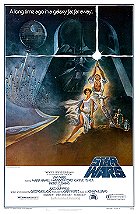




 0 comments,
0 comments, 